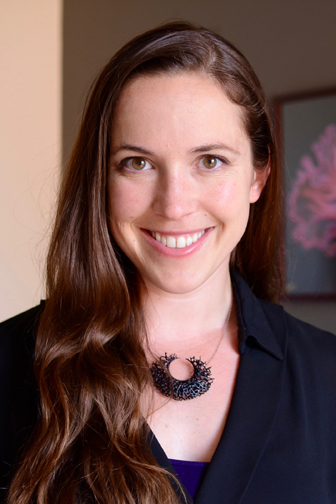
Title: Assistant Professor of Psychology
Hometown: Santa Cruz, California
Educational background: BA in Biological Foundations of Behavior: Neuroscience from Franklin & Marshall College, 2007; MS, MPhil in Psychology from Yale University, 2013; PhD in Psychology from Yale University, 2016.
How did you get into your field of research?
I first got excited about neuroscience and psychology in high school and once I got to college, I started doing neuroscience research after my freshman year. My research in college moved from one species to another — from rats to monkeys — before I decided that I was most interested in linking human brains to human behavior. After college, I worked in a lab that used brain imaging techniques (fMRI) to understand how people recognize scenes and use that information to navigate. From that experience, I realized how much power there was in a technology that let me look into the brain of people as they perceive, think about and remember aspects of the world around them. I was hooked.
What attracted you to UW-Madison?
The quality of research is superb, especially in the Psychology Department. The size of the university also means there is a lot of expertise in different domains and a lot of resources. Some of these campus resources have been unexpected (and fun), such as the opportunity to learn how to windsurf right on Lake Mendota. Finally, the city of Madison was also a huge draw.
What was your first visit to campus like?
My first visit to UW-Madison was actually as a potential graduate student. It was the middle of winter and there was a cross-country skiing exhibition going on: the city had covered the roads around the Square with snow and there were dozens of people skiing around the Capitol. My grad student host took me to the top of Van Vleck and I got to enjoy the beautiful view over the campus from there. It was also one of the years when Madison’s Statue of Liberty appeared on Lake Mendota. Even in the middle of winter, I was impressed that there seemed to be so much going on.
What’s one thing you hope students who take a class with you will come away with?
That homeopathy is a scam and playing the lottery is a terrible financial decision (I teach statistics).
Do you feel your work relates in any way to the Wisconsin Idea? If so, please describe how.
I try to keep the Wisconsin Idea in mind when I teach. I’m particularly interested in giving students the tools to be more careful and critical consumers of information. By using examples from politics, medicine, pseudoscience and pop culture (in addition to psychology), I hope to connect statistical concepts to aspects of students’ current and future lives, regardless of their major or career ambitions. My goal is to instill a sense of skepticism in students with regards to claims made by other people, as well as the beliefs and opinions they themselves hold.
What’s something interesting about your area of expertise you can share that will make us sound smarter at parties?
Most of what we see is does not come directly from our eyes but is re-constructed from our brain. Therefore, what we expect to see can have a big influence on what we feel like we see.
Hobbies/other interests:
I like to bike long distances and lift heavy things.